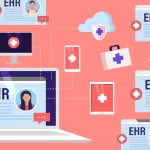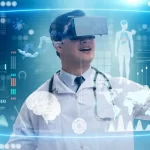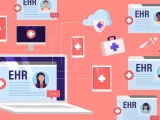
Overcoming Challenges in Medical Coding: Enhancing Accuracy and Efficiency Through Technology and Best Practices
November 19, 2024 Off By adminMedical coding, the process of translating medical diagnoses, procedures, and services into standardized alphanumeric codes, serves as the foundation for healthcare billing, analytics, and patient care. While essential, medical coding is fraught with challenges stemming from the complexity of medical terminology, ever-changing guidelines, and diverse documentation practices. These hurdles not only affect reimbursement but also influence data quality and healthcare delivery. With the global medical coding market projected to grow at a compound annual growth rate (CAGR) of 9.45% and reach USD 35.63 billion by 2029, addressing these challenges is vital for sustaining the efficiency of the healthcare industry.
Table of Contents
ToggleCommon Medical Coding Challenges and Strategies to Address Them
- Coding Inaccuracies
Coding inaccuracies often arise due to misinterpretation of medical records, inadequate training, and coder fatigue. Errors such as assigning incorrect codes can result in claim denials, delayed reimbursements, and legal issues. Additionally, inaccuracies compromise healthcare analytics and research, impacting decisions on resource allocation and quality improvement initiatives.
Solutions:
- Regular Training: Ongoing education helps coders stay updated on the latest coding standards and guidelines.
- Double-Checking Systems: Establishing thorough review processes ensures errors are caught before claims submission.
- Technological Tools: Advanced coding software equipped with error-checking capabilities can minimize inaccuracies.
- Collaboration: Enhanced communication between coders and healthcare providers clarifies ambiguities in documentation.
- Audits: Periodic audits identify recurring errors, enabling continuous improvement in coding practices.
- Documentation Deficiencies
Incomplete or ambiguous medical records present a major obstacle to accurate coding. Physicians may omit critical details due to time constraints, leading to gaps that complicate the coding process.
Solutions:
- Physician Education: Training clinicians on the importance of detailed and standardized documentation fosters accuracy.
- Coding Tools: Automated prompts in coding software guide clinicians to provide comprehensive documentation.
- Collaboration: Regular interaction between coders and clinicians resolves documentation gaps in real-time.
- Adapting to Regulatory Changes
Healthcare regulations and coding guidelines are dynamic, reflecting advances in medical knowledge and technology. Coders must continuously adapt to these updates to ensure compliance.
Solutions:
- Staying Informed: Subscribing to coding updates and participating in industry forums helps coders remain current.
- Training Programs: Structured training ensures coding staff are equipped to implement changes efficiently.
- Internal Audits: Routine checks ensure compliance with the latest standards and identify potential gaps.
- Staff Turnover and Training Gaps
Frequent turnover in coding departments disrupts workflow and increases error rates. Onboarding new staff often strains resources and delays operations.
Solutions:
- Comprehensive Onboarding: Tailored training programs expedite the acclimatization of new coders.
- Mentorship Programs: Pairing new staff with experienced coders facilitates knowledge transfer.
- Cross-Training: Training coders in multiple specialties increases flexibility and reduces disruptions.
- Technology Integration Issues
The adoption of new technologies in coding, such as electronic health records (EHRs) and artificial intelligence (AI)-driven tools, can face hurdles like software incompatibility and resistance from staff.
Solutions:
- User-Friendly Software: Intuitive platforms reduce learning curves for coders and clinicians.
- Vendor Collaboration: Partnering with software providers ensures smooth implementation and timely support.
- Robust IT Support: On-demand technical assistance minimizes workflow disruptions.
- Claim Denials and Rejections
Errors in coding and claims submission, such as missing information or mismatched codes, result in denied claims. These setbacks delay reimbursements and increase administrative workloads.
Solutions:
- Automated Scrubbing Tools: Pre-submission checks identify and correct errors, reducing denials.
- Detailed Documentation: Ensuring medical records align with coding requirements improves claim acceptance rates.
- Feedback Mechanisms: Analyzing denial trends provides insights for preventing recurring errors.
- Compliance with Coding Guidelines
Non-compliance with established guidelines leads to financial penalties, legal consequences, and reputational damage. With frequent updates to coding systems, maintaining compliance requires vigilance.
Solutions:
- Continuous Education: Regular workshops and certifications keep coders adept at handling guideline changes.
- Advanced Coding Tools: Software with built-in compliance checks reduces risks of non-adherence.
- Documentation Audits: Systematic reviews ensure alignment between medical records and assigned codes.
The Role of Medical Codes in Healthcare
Medical codes are more than just billing tools; they form the backbone of modern healthcare systems. By standardizing the description of diagnoses, procedures, and treatments, they facilitate:
- Accurate Billing and Reimbursement: Proper codes ensure providers receive timely and fair compensation.
- Improved Patient Care: Codified data supports care continuity, especially during transitions between providers.
- Enhanced Research and Analytics: Codes aggregate large datasets for public health studies, policy formulation, and clinical research.
- Regulatory Compliance: Accurate coding prevents fraud and ensures adherence to healthcare regulations.
Emerging Trends in Medical Coding
As technology evolves, medical coding is integrating advanced tools to overcome persistent challenges:
- AI and Natural Language Processing (NLP): These technologies automate code assignment and error detection, increasing efficiency.
- Telemedicine Coding: With the rise of remote care, new codes and guidelines are emerging to address virtual consultations.
- Blockchain for Security: Blockchain technology ensures secure and tamper-proof documentation, protecting patient data integrity.
- Value-Based Coding: Transitioning from fee-for-service to value-based care models emphasizes accurate coding for quality assessments.
Conclusion
Medical coding is an indispensable part of the healthcare ecosystem, directly influencing financial sustainability, patient outcomes, and data-driven innovation. While challenges like coding inaccuracies, regulatory changes, and staff turnover persist, adopting best practices and leveraging advanced technologies can significantly enhance accuracy and efficiency. As the field continues to evolve, medical coding professionals must embrace lifelong learning and adaptability to thrive in an increasingly complex environment.
For small practices and healthcare institutions, outsourcing to specialized medical coding providers offers a strategic solution to overcome these challenges, ensuring compliance, reducing errors, and streamlining revenue cycles.
Related posts:
![AI-chatbot-healthcare]()
AI-powered chatbots in healthcare
A.I![electronichealthrecord]()
Top free EHR software systems
Health informatics![Wearables-and-Remote-Monitoring]()
How Wearables and Remote Monitoring Are Advancing Telehealth
Health informatics![clinical-data-management]()
Clinical Data Management Essentials from Experienced Health Informaticians
Data Science![Artificial_Intelligence__AI__Machine_Learning_-_Deeplearning]()
Machine Learning in Healthcare
A.I![Healthcare Data Analytics]()
Actionable Healthcare Data Analytics: Where to Start and What to Know
Health informatics![Neuromorphic Computing]()
AI and Digital Transformation
A.I![Computer-vaccine-design-bioinformatics]()
Mastering the Health Informatics Toolbox: Essential Tools for Specialists
Health informatics![Healthcare_IT-standards]()
Health Informatics vs. Bioinformatics: Understanding the Differences, Challenges, and Emerging Trend...
bioinformatics![Health-Information-Management]()
Health Information Management and Healthcare Information Technology
Health informatics![Healthcare_IT-standards]()
5 Must-Know Data Analytics Tools for Professionals
A.I![health informatics]()
EHR vs. EMR: Differences and Significance in Modern Healthcare
Health informatics![Health-Information-Management]()
Careers in Health Informatics
Guides![electronichealthrecord]()
Understanding Medical Coding Systems: A Comprehensive Guide
Health informatics![VR-in-healthcare]()
Unlocking Healthcare Transformation: The Future of Virtual Reality
Health informatics![AI-Powered Diagnostics]()
AI-Powered Diagnostics in Healthcare
Health informatics















